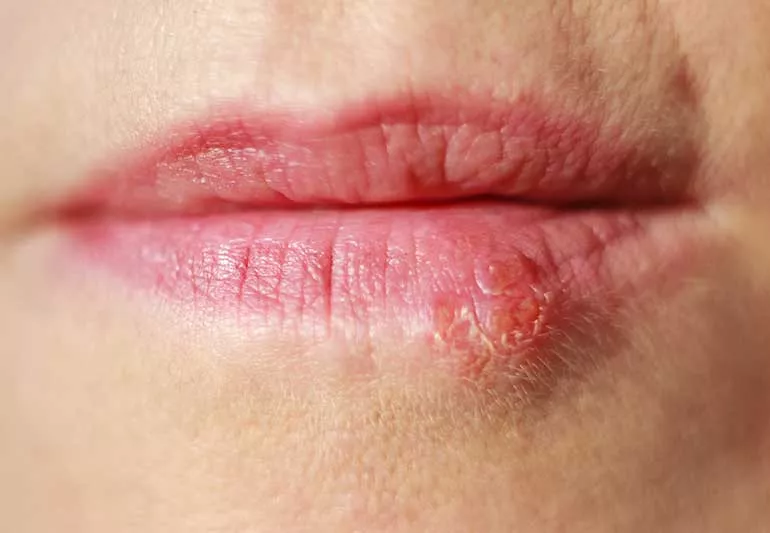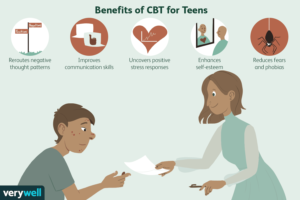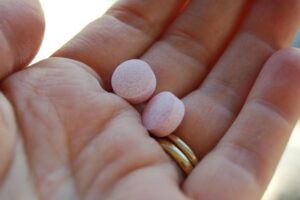Can you get a Pimple on your Lip?

Pimple on Your Lip: Causes, Treatments, and Prevention
Those pesky pimples can pop up anywhere, and sometimes they target the most inconvenient spots – like your lips! While not as common as on your forehead or cheeks, pimples can indeed develop on your lips or along the lip line. This article delves into the reasons behind lip pimples, explores effective treatment options, and offers tips for prevention.
Understanding Lip Pimples: Why Do They Form?
Pimples, also known as acne, are caused by clogged pores. Here’s a breakdown of the culprits behind lip pimples:
-
Excess Oil Production: Sebum, an oily substance produced by sebaceous glands, helps keep your skin lubricated. However, overproduction of sebum can clog pores, creating a breeding ground for bacteria.
-
Dead Skin Cells: Skin cells naturally shed, but sometimes dead cells don’t shed properly and contribute to pore blockage.
-
Bacteria: The bacteria Propionibacterium acnes (P. acnes) thrives in clogged pores, leading to inflammation and the formation of pimples.
-
Hormonal Fluctuations: Hormonal changes, especially during puberty or menstruation, can trigger increased oil production and contribute to lip pimples.
-
External Irritants: Certain products like lipsticks, lip balms, or even toothpaste can irritate the delicate lip skin, leading to breakouts.
-
Friction: Frequent rubbing, touching, or picking at your lips can irritate the skin and introduce bacteria, promoting pimple formation.
-
Diet: While not directly proven, some studies suggest a link between sugary or processed foods and acne breakouts.
Identifying a Lip Pimple: What Does It Look Like?
Lip pimples typically appear as small, red bumps on your lips or along the lip line. They might be tender to the touch and could contain pus. Unlike cold sores, which often appear in clusters and can cause tingling or burning, lip pimples are usually solitary.
Treating Lip Pimples: Soothing Strategies
The good news? Lip pimples are generally temporary and can be treated effectively. Here are some approaches to consider:
-
Gentle Cleansing: Wash your face with a gentle, fragrance-free cleanser twice daily. Avoid harsh scrubbing or rubbing your lips.
-
Spot Treatment: Apply a topical acne medication containing benzoyl peroxide or salicylic acid directly to the pimple. Opt for oil-free formulas to avoid further irritation.
-
Warm Compress: Soak a clean washcloth in warm water and apply it to the pimple for 10-15 minutes a few times a day. This can help reduce inflammation.
-
Moisturize: Use a fragrance-free lip balm to keep your lips hydrated. Avoid heavy, petroleum-based products that can clog pores.
-
Resist the Urge to Pick: Picking at your pimple can worsen inflammation and potentially lead to scarring. Leave it alone and allow it to heal naturally.
Important Note: If your lip pimple is large, painful, or doesn’t improve with home remedies, consult a dermatologist. They can prescribe stronger medications or recommend other treatment options.
Preventing Lip Pimples: Proactive Strategies
Here are some proactive steps to minimize the risk of lip pimples:
-
Maintain a Clean Makeup Routine: Avoid using expired makeup products and wash your makeup brushes regularly to prevent bacteria buildup. Consider using oil-free or non-comedogenic lip products that won’t clog pores.
-
Don’t Lick or Pick: Licking or picking at your lips can introduce bacteria and irritate the skin.
-
Exfoliate Gently: Regularly exfoliate your lips with a gentle scrub to remove dead skin cells that can contribute to pore blockage. Opt for a gentle sugar scrub or a soft washcloth.
-
Manage Stress: Chronic stress can exacerbate acne breakouts. Practice stress-management techniques like yoga, meditation, or deep breathing.
-
Diet: While dietary links to acne aren’t conclusive, consider limiting sugary and processed foods. Focus on a balanced diet rich in fruits, vegetables, and whole grains.
When to See a Dermatologist
If your lip pimple is:
- Large and painful
- Doesn’t improve with home remedies within a week
- Leaves a scar
- Accompanied by other concerning symptoms
See a dermatologist for proper diagnosis and treatment. They can rule out any underlying conditions and recommend the best course of action for your specific situation.
Conclusion: Keeping Your Lips Pimple-Free
Lip pimples, while annoying, are usually treatable with proper care. By understanding the causes and implementing preventive measures, you can minimize breakouts and keep your lips healthy and smooth.



